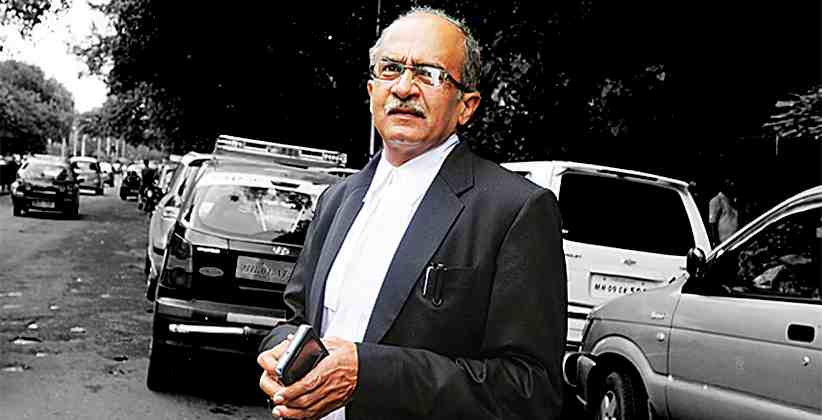The Supreme Court on February 10, 2020 transferred the Criminal Defamation case against Advocate Prashant Bhushan from Rohtak in Haryana to Delhi Patiala House Court. Yesterday (9 February, 2020) Bhushan moved the Supreme Court seeking transfer of Criminal Defamation case from Haryana to Delhi.
Bhushan claimed that the case is only a Vindictive action against him by Indiabulls to keep him quiet so that he cannot highlight the illegalities of the company.
Indiabulls filed the case in Rohtak, Haryana before Court of Judicial Magistrate First Class for publishing a defamatory content on social media platform like- Instagram, Twitter and Facebook to damage their goodwill.
Bhushan further contended in his transfer petition that Indiabulls is doing this to harass him as he is the signing authority and the Secretary of Citizens at the Whistle Blowers Forum that has filed a PIL (WPC 9887/2019) before the Delhi High Court to seek illegalities exercised and violations committed by Indiabulls.
Bhushan has submitted that he is a practicing Advocate in Delhi High Court and travelling to Haryana is more or less inconvenient and causing him undue difficulty.
Citing further instances Bhushan said-intimidatory legal tactics to overawe and silence those who highlight illegalities and irregularities in the conduct of its business so as to dissuade scrutiny.
Defamation under Indian Penal Code, 1860
Section 499 defines Defamation.Whoever, by words either spoken or intended to be read, or by signs or by visible representations, makes or publishes any imputation concerning any person intending to harm, or knowing or having reason to believe that such imputation will harm, the reputation of such person, is said, except in the cases hereinafter expected, to defame that person. Explanation 1.It may amount to defamation to impute anything to a deceased person, if the imputation would harm the reputation of that person if living, and is intended to be hurtful to the feelings of his family or other near relatives.
Explanation 2.It may amount to defamation to make an imputation concerning a company or an association or collection of persons as such.
Explanation 3.An imputation in the form of an alternative or expressed ironically, may amount to defamation.
Explanation 4.No imputation is said to harm a persons reputation, unless that imputation directly or indirectly, in the estimation of others, lowers the moral or intellectual character of that person, or lowers the character of that person in respect of his caste or of his calling, or lowers the credit of that person, or causes it to be believed that the body of that person is in a loathsome state, or in a state generally considered as disgraceful.
Section 500 prescribes the punishment for defamation.whoever defames another shall be punished with simple imprisonment for a term which may extend to two years, or with fine, or with both.
In India, Defamation can be viewed as a civil offence as well as criminal offence and may be defined as the writing, publication and speaking of a false statement which causes injury to reputation and good will for private interest. The remedy for a civil defamation is covered under the Law of Torts.
Author: Aarya Mishra









